With most of the world stuck at home due to COVID-19, it’s the ideal opportunity to start getting into a good home fitness or weight loss routine. Besides, having spent so much time indoors, I’m sure I’m not the only one who has packed on a few extra pounds! #noshame
However, before you jump into a vigorous regime, you might wanna make sure you get the facts right about weight loss. After all, it’d be really demotivating to work hard at something only to realise down the road that you’ve been misled. So, here are nine common weight loss myths people still believe that you should know about before you start your fitness journey!
1. Weighing myself daily helps me track my progress accurately

It’s safe to say that most people decide to embark on a weight loss journey mainly because of the numbers that appear on the weighing scale. After all, our weight goes a long way in determining our BMI which is a good indicator of our health, isn’t it? So, when I start on a weight loss regime, I should regularly check my weight to track my progress.
If it goes down, it means it’s working; if it doesn’t, I should try something different! That’s all there is to it, right? Wrong!
Apart from the fact that medical professionals agree that BMI measurements aren’t always accurate indications of a person’s health, weight loss isn’t a linear process.
What actually happens
Many factors can influence the numbers on the scale. These often have nothing to do with exercise. One of the most common errors people make about weight loss is mistaking losing water weight as fat loss.
Basically, water weight is excess water that clings to your tissues, joints, and body cavities. You can lose water weight easily by sweating, staying hydrated (sounds counterintuitive but it works), and eating a meal rich in fibre (water binds to fibre and gets eliminated when you go to the loo). However, you can also very easily gain it back, sometimes almost immediately!
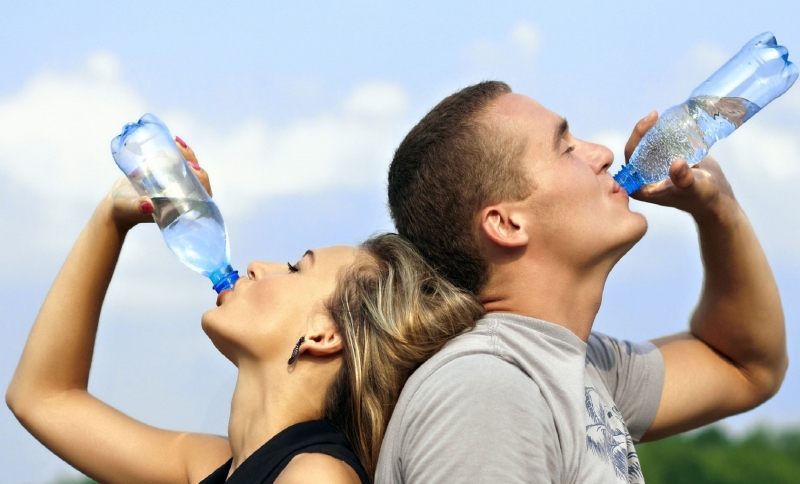
You gain water weight mostly by eating or drinking. But what you might not know is that you can even gain water weight by working out vigorously! Ever wondered why your weight keeps on increasing even though you exercise regularly? When you exercise, you stress your muscles and cause micro tears in the muscle fibres (this is why you feel sore after a tough workout). As you heal, your body retains more water and thus, the number on the scale goes up!
You might think that water weight doesn’t make that much of a difference but it actually does! Experts believe that, within a 24-hour period, you can actually lose and gain up to 2kg of water weight! So remember, daily fluctuations in your weight is normal. Be patient! It takes time to see the effects of an effective weight loss regime!
2. I need to COMPLETELY cut out carbs to lose weight
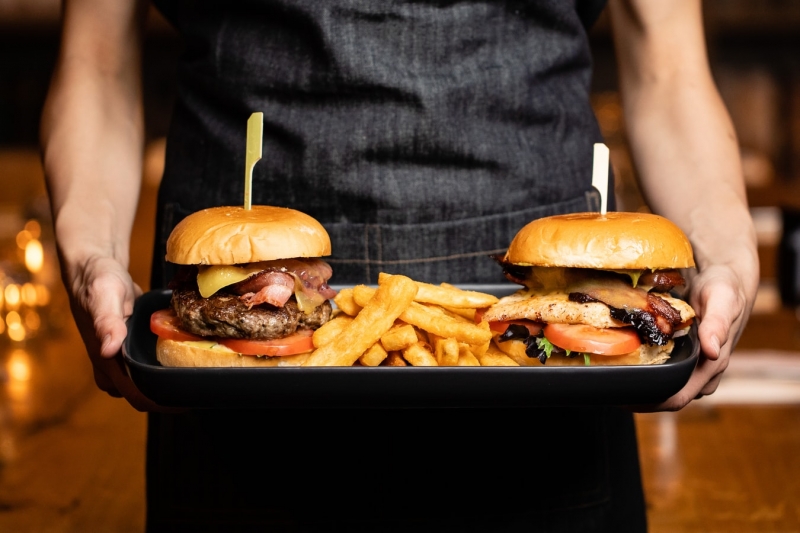
This is perhaps one of the most commonly lauded “secrets” of weight loss. Whether you subscribe to a KETO diet or some other low-carb eating programme, the message seems to be the same: carbs are the devil of nutrition. If you want to lose weight, stop eating carbs! But does eating carbs actually have that big of an effect on your weight? Well, it depends.
What actually happens
First, let’s understand how carbs work. Carbohydrates are the main energy source of our body but that burger that you’re eating doesn’t magically turn into fuel the moment it enters your stomach. Your body converts carbs into glucose which raises your blood sugar levels.
To prevent your blood sugar levels from getting too high (diabetes), your pancreas secretes the hormone insulin. Insulin essentially helps the body absorb the glucose and stores any excess as fat. That’s why even though limiting your intake of carbohydrates (sugary drinks, snacks etc.) can help you lose a few pounds, you don’t necessarily need to give them up completely if you’re not overeating in the first place!
In fact, a lot of vegetables and fruits like bananas and sweet potatoes are actually carb-rich foods! If you cut these out of your diet, you run the risk fibre deficiency, which, if you remember from earlier, actually causes your body to retain water weight! Instead of throwing that slice of chocolate cake into the bin, focus on eating a balanced diet.
3. The reason I’m not losing weight is because I eat too many late night snacks
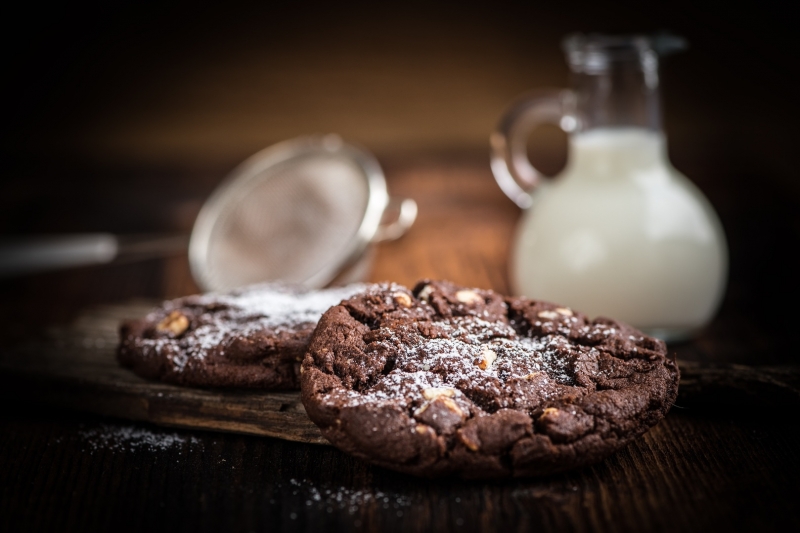
Another common misconception is that having a late night snack or having dinner after (insert time here) will cause you to gain weight. I too believed this for the longest time but, according to a study published in the American Journal of Clinical Nutrition, it’s not always the case.
What actually happens
First, let’s understand the reason why having a late dinner or supper is a bad idea. When we have breakfast or lunch, our body is able to burn off the excess calories because we’ll most likely be active for the rest of the day. However, night time is for sleep and rest. So if we have a large meal or we eat an excess amount of food before going to bed, we have no means to burn it off, thus leading to eventual weight gain.
However, that’s assuming that whatever you eat at night leads to an excess of daily calories! Here’s the one keyword you need to lose weight: a caloric deficit. Basically, it means eating less calories than your body actually needs on a daily basis. Basically, an average human adult needs about 2,000 – 2,500 calories a day to maintain their weight. Eating just 500 calories (a Big Mac contains 550) less than that will lead to weight loss. You can increase the effectiveness further by adding regular exercise.
So, if you’re really stringent on your calorie intake and you plan your meals well, you can have a late night snack without worrying that it will affect your weight loss regime. However, the important factor here is choosing what you eat. As much as possible, go for healthier options instead of late night pizzas or chicken nuggets.
4. Eating fat makes me fat
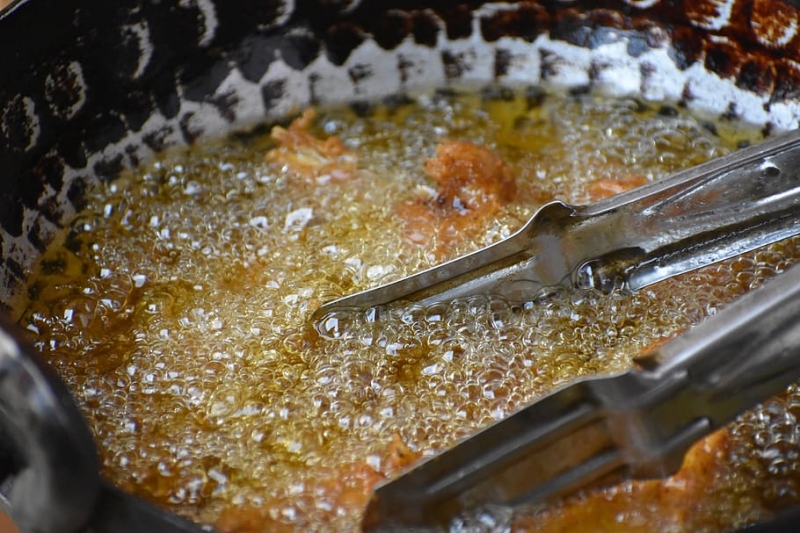
The notion that eating foods high in fat will cause weight gain seems to be logical on paper. However, it actually depends on the kind of fat that you eat. In fact, there are even certain fats that can actually help you LOSE weight!
What actually happens
Of course, the important thing is to avoid saturated and trans fat (that means fast food, potato chips, processed meats etc.). However, healthy fats like nut butters and avocados have been shown to be able to satiate your appetite and make you eat less. This in turn makes eating a caloric deficit much easier to achieve!
Basically, good fat helps you lose fat! They also promote brain health, improve your skin condition, and contain anti-inflammatory properties, which makes them good for a post-workout meal too!
5. A detox or juice cleanse is a healthy way to quickly lose weight

Perhaps one of the biggest (and perhaps most profitable) industries promoting weight loss is the detox industry. Most companies claim that their products can help a person shed extra pounds in as little as a few weeks! It’s literally one of the most popular fitness myths of the modern era! But have you ever wondered why so many dieticians and healthy professionals are against detoxing and juice cleanses?
What actually happens
For one, as long as your liver and kidneys are functioning properly, your body is already detoxing itself! Taking detox supplements to help “eliminate toxins from the body” is like using a bar of soap to wash another bar of soap because it fell on the floor. It’s unnecessary and a waste of time! If you’re having trouble losing weight, most likely you’re not eating enough fruits and veggies, leading to your body, again, to hold on to extra water weight.
In relation to that, no, juice cleanses are not good substitutes for actual fruits and vegetables! In fact, rather than aid in weight loss, they can even lead to the opposite! That’s because these juices often contain a large amount of sugar, which, if you paid attention to the part earlier about insulin, leads to weight gain!
If you’ve been able to lose weight this way, it’s because you achieved a caloric deficit by switching out your main meals for these tonics and juices. There are healthier ways to do this without needing to deprive yourself of essential nutrients and buying expensive supplements. But don’t take my word for it, here’s Youtube’s favourite medical professional, Dr. Mike, with his take:
6. Doing 1,000 crunches will give me six-pack abs
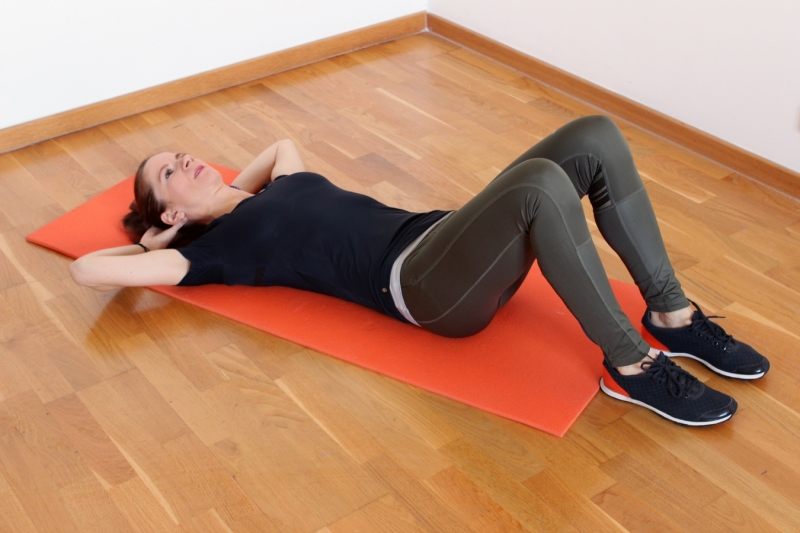
Crunches hurt, a lot. And they usually make you feel sore in your abdominal muscles. So surely, crunches will help me get abs, right? I’m sorry, but you’ve been wasting your time all this while.
What actually happens
The truth is, you already have abs. It’s just that you can’t see them because they’re covered by an excess layer of fat! Doing crunches all the time may give you a little bit more definition and strengthen your core, but it certainly won’t “give” you six-pack abs.
There’s no exercise that can specifically target belly fat. The only way to make your abs stand out is to lose overall body weight. And to do that, you need to stick to a consistent exercise regime which targets all body areas and maintain a caloric deficit. There’s no shortcut to chiseled six pack abs, it’s about consistency and discipline.
Also read: Home Workouts: Exercises You Can Do Using House Items As Equipment!
7. No pain, no gain
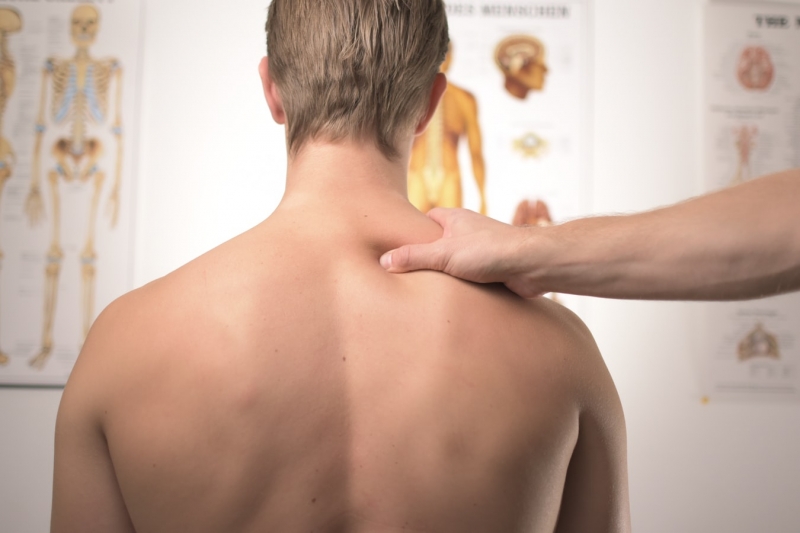
It’s an expression as old as time in the fitness world. But while it is normal to feel sore after a really intense workout, feeling pain is often an indication that something has gone terribly wrong.
What actually happens
As we covered earlier, the reason you often feel sore after a workout is due to micro tears in the muscle fibres. These are normal and are part of the process of making your muscles stronger. However, if you feel a sharp pain during exercise, it most likely signals an injury. It could range from bad posture to a light sprain or even a major muscle tear!
8. Lifting weights will always bulk you up

I’m sure some of the ladies here have heard that lifting weights will cause them to develop overly muscular arms. Because of this, many of the girls I know simply refuse to do any weight training in the gym. But will you really get arms like Vin Diesel if you keep lifting weights?
What actually happens
The truth is, if you progressively exercise with weights (ie, moving from 1kg to 2kg to 5kg), then yes, you will most likely get bigger arms. However, according to a study published in Medicine & Science in Sports & Exercise, you can also slim down by doing some light weight training. This is because weight training can help you burn more calories in the same amount of time as those who don’t do weight training.
9. Sweating a lot indicates good fat burning action
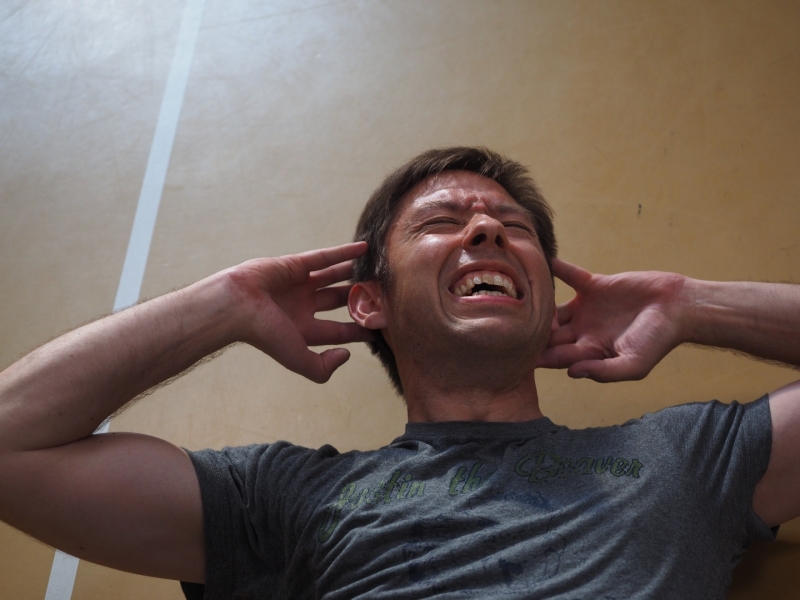
Finally, I’m sure you’ve seen some people say that “sweat is fat crying”. It feels good too, doesn’t it? Feeling the sweat drip off your body after a tough workout, that sense of accomplishment that comes with knowing that you’ve pushed your body to the limit? Sadly, sweat isn’t a good indicator of fat loss.
What actually happens
As we covered earlier, sweating is basically our body’s way of eliminating excess water weight. However, while we don’t lose fat from sweating, it often correlates with how we actually lose fat. If a workout is so intense that it makes you sweat a lot, it’s likely that it is also making you breathe more heavily. The British Medical Journal states that 10kg of fat turns into 18.4kg of carbon dioxide. That’s right, we literally exhale fat from our body when we exercise!
Get fit the healthy way!
And there you have it, nine fitness myths you probably still believe about weight loss! Hopefully this article helps you understand the dynamics behind losing weight a little bit better so you don’t have to put yourself through fitness hell for less-than-satisfying results! Are there any other fitness myths we might have missed? Let us know in the comments!






